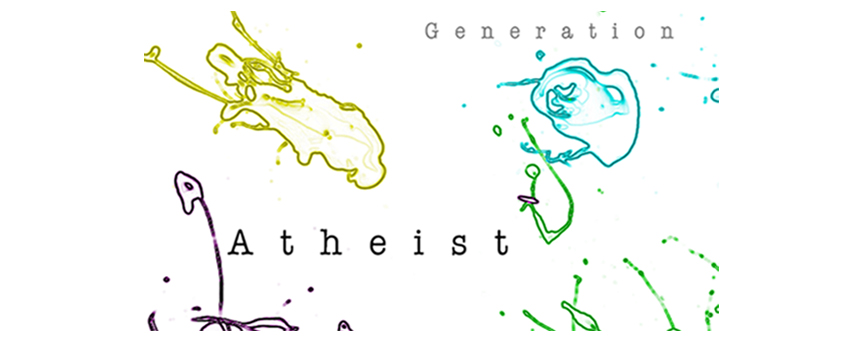Darrel Ray is a psychologist who wrote the book The God Virus which looks at the mechanism of belief and how it passes itself on and reinforces itself in its host. It's a fantastic read for anyone who is interested in memes and psychological mechanisms behind powerful ideas and cults. There is more to how religions spread and survive than just a crotchety old man in robes being sent out to wander around shouting “Wololo” at people. Oh no, in reality religion is much more like a highly refined biological weapon that exploits universal human weak-points.
One of the most powerful tools religion has is what is called the Guilt Cycle. The religion will convince you from a young age that certain things are sinful and deserving of hell, then they'll tell you they have the cure; they'll link in your mind shame and guilt with lots of perfectly human and natural behaviours and thoughts and then set up the church as the only place to nullify that guilt for a short while. It becomes indistinguishable from addiction to pain killers, eventually you're going to feel lust and the guilt that comes with it and the only place you'll find solace for that unnecessary guilt is in the church.
[Ray more recently conducted a survey on sexuality in the secular, Sex and Secularism, looking that what long term lasting effects this cycle might have and perhaps surprisingly and happily it turns out that generally people can shake off the addiction relatively quickly after deconverting.]
 |
| Dilemma... |
Anyway, I wanted to establish the Guilt Cycle concept as a context to tell you about my experiences around sexuality and religion. First off, I consider myself bisexual, but given that everyone seems to have their own definitions of these labels, it's really difficult to say that and have it be meaningful – much to my annoyance. But for all intents and purposes let's keep it simple: it's fact that I find romantic and sexual attraction to both sexes. But it wasn't always like that and as much as people say, “People are born that way.” It's certainly not always the case. When I originally started noticing my peers in that way, I was 11, maybe 12, and I was only attracted to girls and it seemed like every day I had a new crush.
I was also very Christian at this point having been raised to believe in creationism even and we were already getting the ol' “sex is of the flesh and sinful” type tracts in youthgroup by then. For a few years after that, things went on as normal (you know, wanking then praying for forgiveness, the normal life of a young Christian). But things were about to change. I dunno why, maybe it was because I liked tomboys and he kind of confused the parts of my brain that react to girls and his tall, slender and slightly athletic figure with his long hair and bright blue eyes just suddenly did it for me. I ended up with a crush on a boy! I can tell you that was a very scary realisation to me.
Part of the problem was the dichotomy we're implicitly taught in society; that there are straight people (who have no interest in other people of the same sex ever) and they are “normal”. Then there are gays who are nasty and like buttsecks and being covered in bodily fluids and who talk funny and who will automatically hit on you and spread AIDS, etc.. Not even SexEd in schools really set us straight, so to speak, and that things are just more complicated than the simple and false dichotomy of gay and straight and the stereotypes that go with them. Without a realistic understanding of human sexuality, a young guy can only jump to nonsensical conclusions.
Now my church back then weren't really in the business of saying “fags are going to hell” or anything like that, oh no, that would be too controversial in my country. The position of the people my old church on sexuality would be very difficult to pin down, I certainly don't remember them talking about it much (but I never really listened). However what they certainly never did was dispel the myths. I had impressions from my father, reading the bible and from culture that lead me to terrible conclusions about myself. In desperation we all will grasp at straws if we don't know any better. The fact that I was only attracted to girls and now was fantasising about boys too meant I was changing for some reason. I rationalised that change on a Christian basis.
I thought my new attractions were a manifestation of my own sinful corruption. That I was so bad (I couldn't work out where I was being so bad but never mind) that my own heart was like mutating into perversion. Any confidence I had by this time was utterly destroyed by this belief. I went into a deep depression, prayed more earnestly than ever before and did my best to try and change. Needless to say, I never did change. Disproof of my belief? Not at all! Only proves I was worse than I thought, at least that's how I rationalised it at the time.
I swallowed my turmoil for some time and after awhile just sort of accepted the idea I was corrupted and put it to one side. I agreed to myself that I'll fantasise about guys if I need to but I was only to act on opposite-sex impulses for the rest of my life. That may have been a workable solution from my perspective but it never made me feel any better about myself. The other thing was that all my best friends back then were Christian and as much as I trusted each one of them, I couldn't cope with the idea being 'out there' that part of me wanted to "be with" other guys (and that continued to be the case for years and even a little while after I became an atheist) so it all still weighed very heavily on my mind all the time.
When I deconverted 3 years ago, I had the opportunity to restructure my whole world view. I took the time to learn about human sexuality, the things I should have learnt about in school, and so don't feel like some kind of perverted freak. I grew the confidence and even pride enough to come out to everyone even though I got an almost immediate negative reaction from some of my friends. Their reaction though was rash and not thought through and after a while they all didn't care again.
While I'm happy about myself and have been able to have some great experiences because of that since (*wink*), honestly, I still have a chip on my shoulder. I can still remember very well the shame and the guilt and the gut wrenching self-loathing from my teen years.
I've been accused a few times of simply “hating God”... Rightly fucking so I say! At least I do for the religion and the quiet complicity in those who allowed the physical and internal, emotional torments, and the exploitation of those things to spread this God virus to me and other innocent young people.
If you are a young non-theist who wants their voice to be heard, consider submitting an article of your own to Generation Atheist. Visit our submissions page for details.








